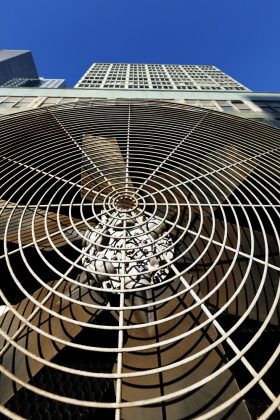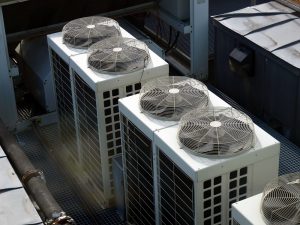Covering An Outdoor Air Conditioner: Worth It Or Not
A new Commercial HVAC unit can cost thousands of dollars. Naturally this means you’ll want to protect it as much as possible. One thing many people consider is covering their outdoor unit during the off-season. Is this a good thing or not? Here are some things to consider.
#1. Leaves and Debris can Damage a System
Keeping leaves, pine needles, and other debris out of your air conditioner will increase its lifespan. As such, providing some barrier between your unit and the elements is needed in fall. Leaves and twigs could even make their way into the fins during winter. Covering your unit is one way to prevent as much debris as possible from clogging up things.
#2. Falling Ice can Wreak Havoc
During an ice storm, large chunks of ice can fall onto an air conditioner. Some of these chunks can gain quite a bit of momentum on their way down. As a result, you may notice dings, dents, or even a total collapse of your unit. That’s less likely to happen when your air conditioner has some degree of protection.
#3. Potential for Freezing Fan Blades
A little snow is unlikely to hurt anything. Even so, when snow becomes so high that it fully encapsulates your unit, you run the risk of your fan blades freezing up. Most of the time, they will run fine after thawing out, but repeated freezing and thawing could lead to permanent damage.

#4. Your Unit is Designed to Withstand Harsh Conditions
You may feel as though shielding your system from the elements would be a good thing. The truth is that outdoor units are designed to withstand freezing temperatures. In fact, covering your unit could lead to moisture buildup-something that might actually harm it. Mold could even develop inside the coils and spread to indoor areas once it is up and running again.
#5. Some Covers Attract Rodents
During the colder months, rodents and other small animals look for warm places to burrow. An insulated cover provides them the perfect environment in which to thrive. Critters can get into very small areas, so a tight-fitting cover will not keep them out. Once inside, they may chew on wires or coils, causing extensive damage.
#6. UV Rays are Present all Year
Air conditioners can suffer UV damage even in the winter. Too much sunlight can cause delicate components to dry out and crack. If your unit sits in direct sunlight, it will also have to work harder during the summer months in order to cool your home.
#7. A Right and Wrong way to Cover
We’ve established that a cover can protect your HVAC unit in some situations, but may be harmful in others. The solution is to provide some form of cover for the top of your system, but leave the sides open. A simple sheet of plywood that slightly overhangs the surface should do the trick. This type of cover will also provide some shade and keep UV damage to a minimum.
Rather than covering your unit completely, keep snow from accumulating around it, and trim shrubs and weeds to ensure they do not grow into the fins. Pay attention to standing water, which might also cause the inner components to mildew or rust. If you notice icicles hanging from the fins, knock them off to keep excess water from entering as they melt.
A full cover is normally not needed for most air conditioners, although some protection for the top is preferred. When it comes to safeguarding your system, routine cleanings and maintenance check-ups are the best way to keep your air conditioner working at peak efficiency.
SJHC specializes in helping customers determine the proper requirements of all of their mechanical needs. If you aren’t sure whether or not your system should be covered for the season or not, contact our office anytime and we can help you with your decision to “Cover or Not to Cover”.









